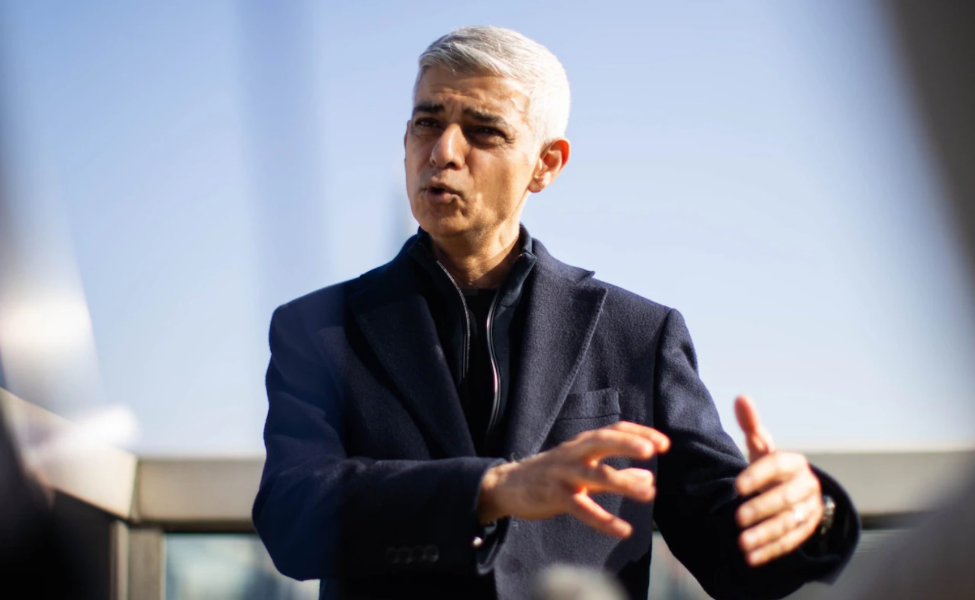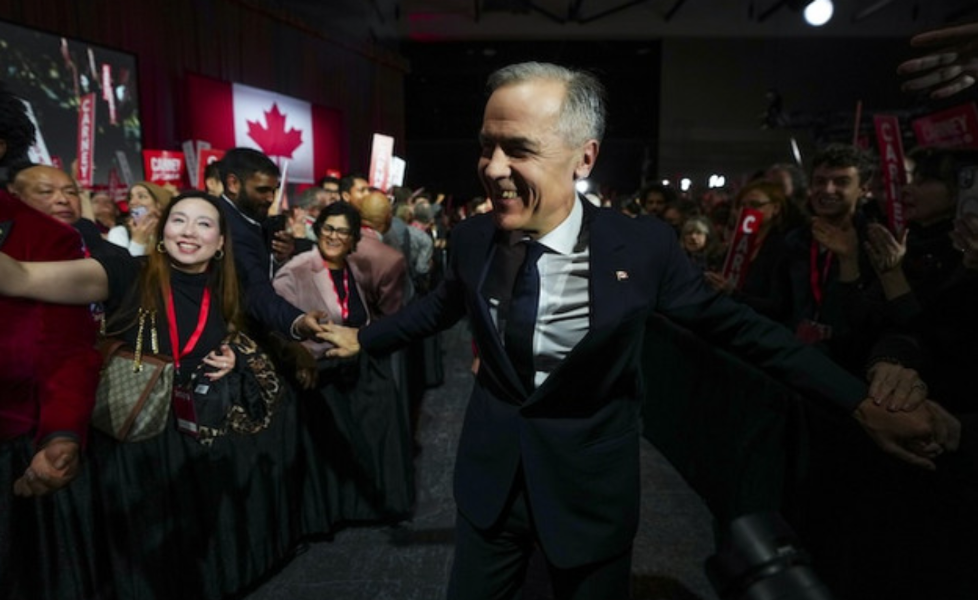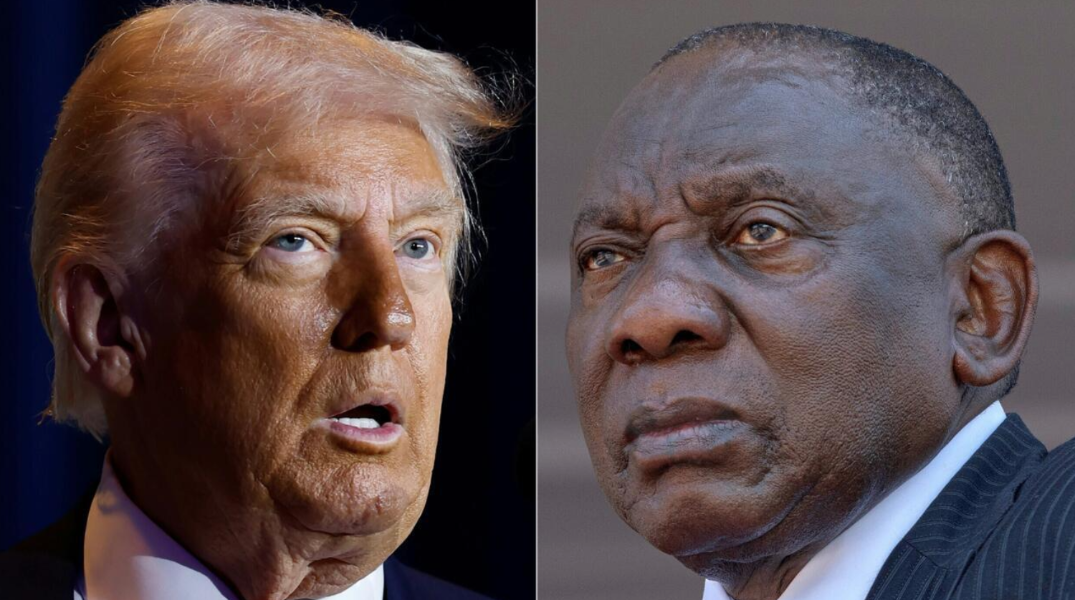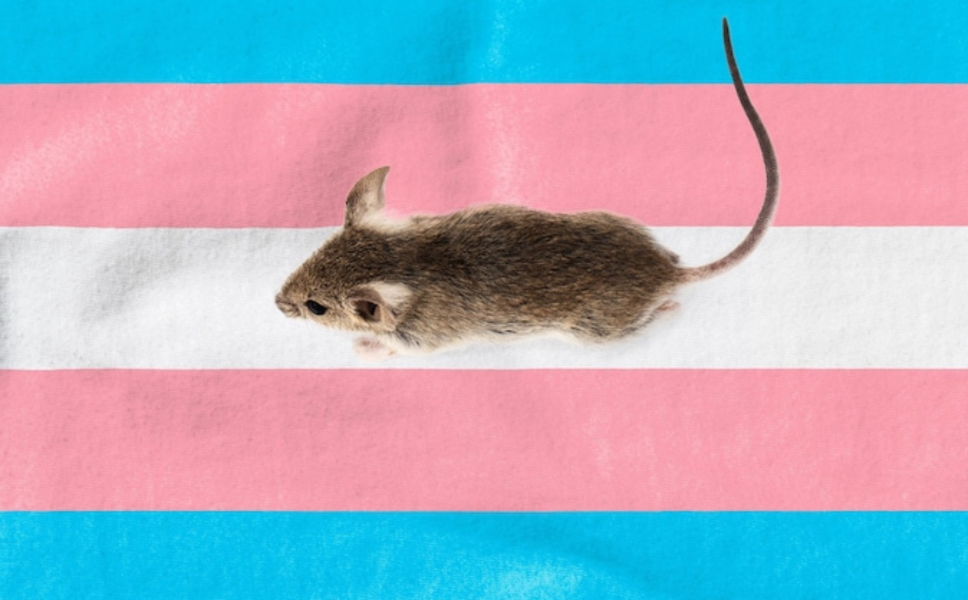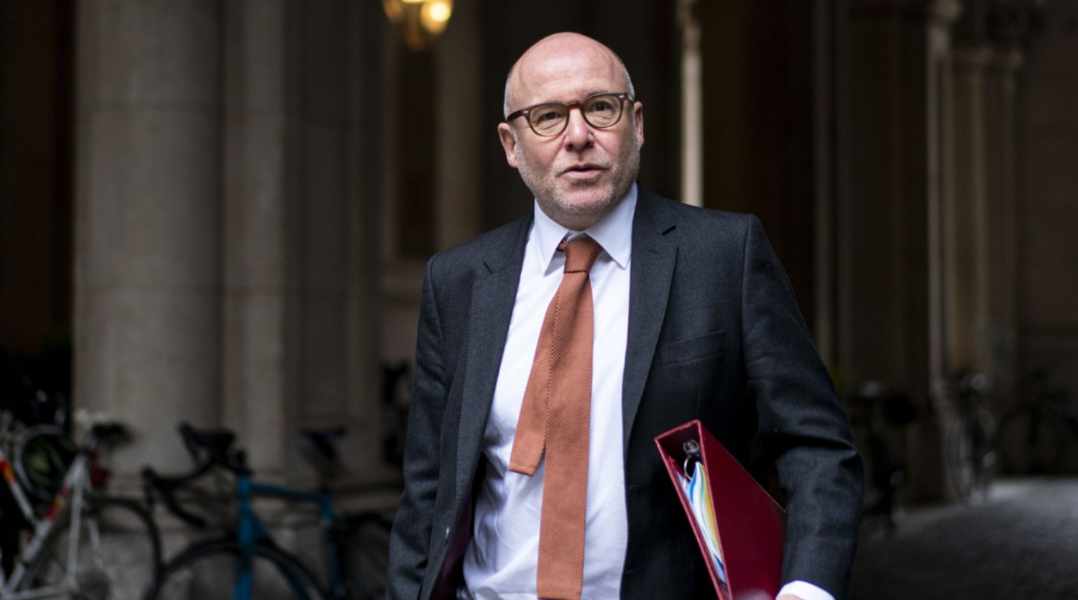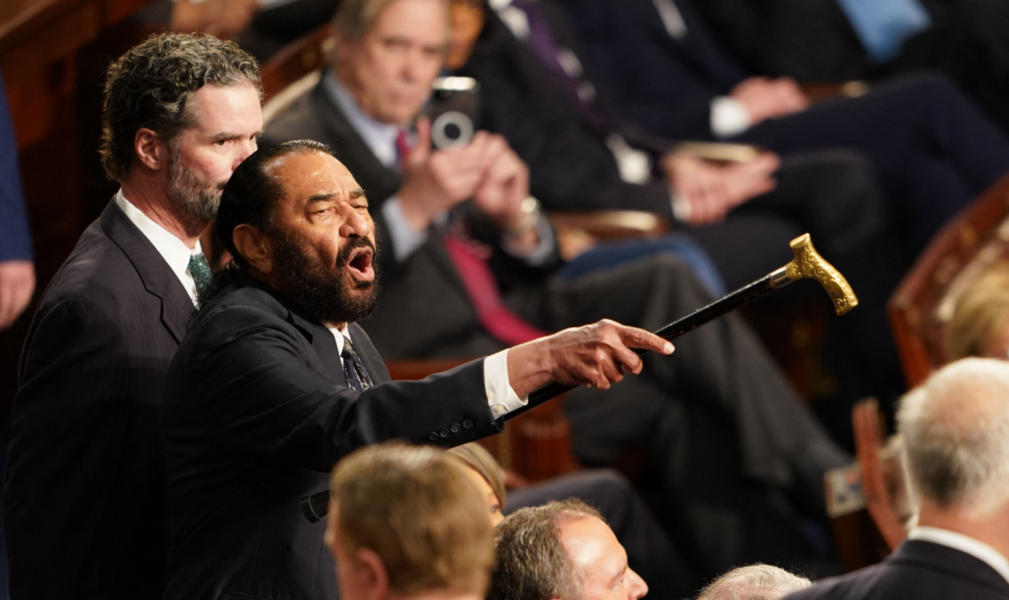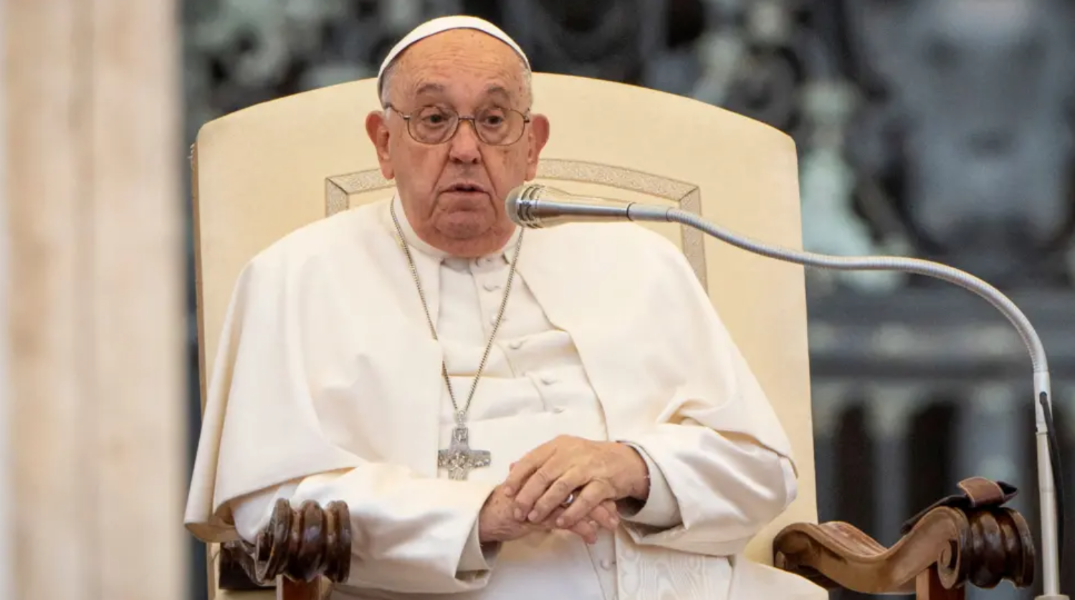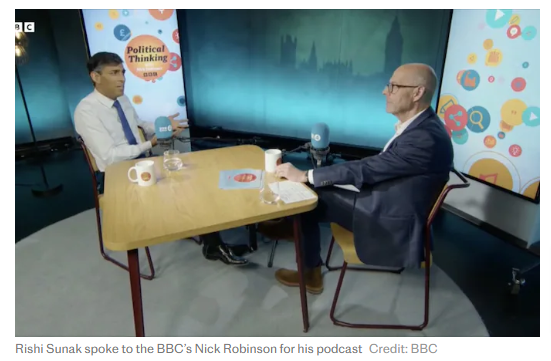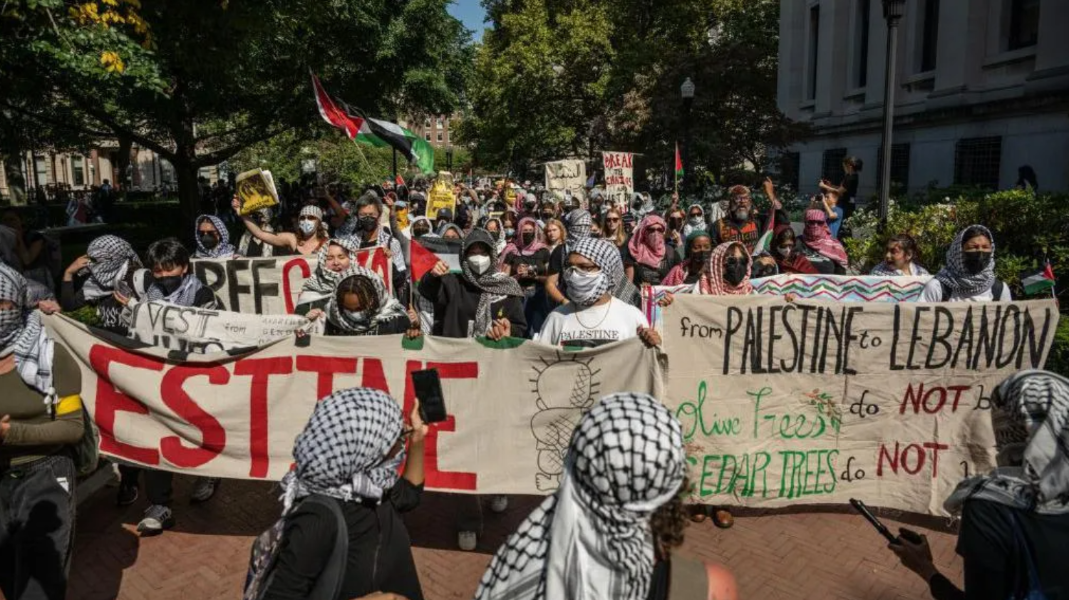-
Posts
10,778 -
Joined
-
Last visited
Content Type
Events
Forums
Downloads
Quizzes
Gallery
Blogs
Everything posted by Social Media
-
The Kremlin has sharply criticized French President Emmanuel Macron following his suggestion that France may extend its nuclear deterrent to protect European allies. Russian officials accused Macron of making direct threats against Russia, with Foreign Minister Sergey Lavrov even drawing comparisons between Macron and Adolf Hitler. Kremlin spokesperson Dmitry Peskov also condemned the French leader’s remarks as “extremely confrontational,” while senior Russian senator Konstantin Kosachev described Macron as a “maniac” pushing the world toward catastrophe. The strong reactions came after Macron announced in a televised address that he would open discussions on potentially extending France’s nuclear protection to other European nations. This proposal followed calls from Friedrich Merz, Germany’s chancellor-in-waiting, for France and the UK to enhance their nuclear deterrent to counter rising threats. Lavrov responded with alarm, stating, “If he sees us as a threat... and says that it is necessary to use a nuclear weapon, is preparing to use a nuclear weapon against Russia, of course it is a threat.” Macron, however, justified his stance by pointing to a rapidly rearming Russia, calling it a danger to both France and Europe. He also noted that the war in Ukraine had already become a “global conflict” and suggested that Europe could no longer depend on the United States for unwavering support. Macron’s rhetoric drew further condemnation from Peskov, who claimed, “France wants the war to continue,” while members of the Russian parliament expressed outrage. Kosachev accused Macron of misleading the world with a false narrative that Russia was preparing for aggression, adding, “Such false conclusions and false suggestions lead to the abyss.” Currently, Russia and the United States control around 88 percent of the world’s nuclear stockpile, with approximately 5,000 warheads each. France possesses an estimated 290 nuclear warheads, while the UK holds 225, according to data from the Federation of American Scientists. Macron, addressing growing concerns among European nations, reassured citizens by stating, “You are, I know, legitimately worried about the current events, which are disrupting the world order. To watch and do nothing would be madness.” His proposal found support from Lithuanian President Gitanas Nausėda, who called the idea “very interesting” and added, “A nuclear umbrella would serve as a really very serious deterrence toward Russia.” As tensions escalate, Macron is set to host European military leaders in Paris next week to discuss the possibility of deploying troops to Ukraine after a ceasefire is reached with Russia. Moscow has firmly opposed any such peacekeeping forces in Ukraine, with Lavrov making clear that Russia sees no room for negotiation on the matter. “This discussion is being held with an overtly hostile aim,” he declared, warning that any European troops sent to Ukraine would be treated as NATO forces. Lavrov also invoked historical comparisons, saying, “Unlike their predecessors, who also wanted to fight against Russia—Napoleon, Hitler—Mr Macron does not act very gracefully, because at least they said it bluntly: ‘We must conquer Russia, we must defeat Russia.’” Meanwhile, Macron expressed concern over shifting US foreign policy, particularly in light of Donald Trump’s stance on European security. “I want to believe that the United States will stand by us. But we need to be ready if that is not the case,” he said. The situation comes amid frantic diplomatic efforts to bolster support for Ukraine. With Washington’s commitment wavering, Britain and France have sought to act as intermediaries between the US and Kyiv. In the past two days, the US has halted military aid to Ukraine and cut off intelligence-sharing, both critical for Ukraine’s defense and strategic operations. Ukrainian President Volodymyr Zelensky has responded by signaling his willingness to engage in peace talks, stating that he is prepared to negotiate “as soon as possible” in a bid to mend relations with the Trump administration. On Thursday, European Union leaders held emergency talks on Ukraine and the potential for a peace agreement, following a high-level summit hosted in London by UK Prime Minister Sir Keir Starmer. Based on a report by The Telegraph 2025-03-10
-
Sir Sadiq Khan has suggested that he may use taxpayer funds to challenge Chancellor Rachel Reeves’ plans for a third runway at Heathrow Airport, citing environmental concerns. The Mayor of London, a long-time opponent of the expansion, has warned that if Heathrow’s plans fail to address his concerns, he is prepared to take legal action. Speaking on BBC Radio 4’s *Today* programme, Sir Sadiq was asked whether he would use public money to launch a legal challenge. He responded, “Look, I’m a pro-business, pro-growth mayor. We recently announced a London Growth Plan because I really believe in the importance of growing the economy.” When pressed further, he added, “I agree with nearly all of Rachel’s policies relating to growth. But let’s wait and see what plans Heathrow publish. Look, if Heathrow don’t address the concerns I’ve highlighted, then, of course, my job is to stand for London.” When asked directly if he would allocate funds from his mayoral budget to oppose the expansion, he reiterated, “Let’s wait and see what plans Heathrow publish. But I will use all the tools in my tool kit if I think it’s wrong in terms of Londoners’ interest, and indeed the national interest.” Rachel Reeves has backed the expansion, describing the third runway as “badly needed” and arguing that it could create 100,000 jobs and be completed within a decade. However, Sir Sadiq has remained firm in his opposition, stating in January, “I remain opposed to a new runway at Heathrow because of the severe impact it will have on noise, air pollution and meeting our climate change targets. I will scrutinise carefully any new proposals that now come forward from Heathrow, including the impact it will have on people living in the area and the huge knock-on effects for our transport infrastructure.” While acknowledging that the aviation sector has made “huge progress” in sustainability, he added, “I’m simply not convinced that you can have hundreds of thousands of additional flights at Heathrow every year without a hugely damaging impact on our environment.” Reeves has also supported plans to expand capacity at Gatwick and other London airports, arguing that such projects are crucial for economic growth. However, opposition to Heathrow expansion is not new within the Labour Party. In 2018, six current Cabinet members, including Prime Minister Sir Keir Starmer, voted against the third runway. Other key figures, such as Energy Secretary Ed Miliband and Environment Secretary Steve Reed, also opposed the expansion at the time. Despite this, some former critics have shifted their stance. In January, Steve Reed stated he would now support the runway “in line with the Government’s climate and environmental commitments.” Ed Miliband reportedly argued against the expansion in a recent Cabinet meeting but later confirmed he would not resign over Reeves’ decision to back it. Sir Sadiq’s opposition to Heathrow expansion is just the latest in a series of policy disagreements with the Labour leadership. Last summer, he hinted at a Brexit divide, suggesting that the UK could rejoin the EU “in the medium to long term,” despite the party ruling out such a move. In 2023, he also opposed Sir Keir’s proposal to allow housing development on green belt land, insisting that even “derelict and unsightly” parts should be protected from construction. His latest remarks suggest that tensions within the party remain over key policy decisions, with the Heathrow expansion set to be a major point of contention in the coming months. Based on a report by The Telegraph 2025-03-10
-
Former UK and Canada central bank chief Mark Carney wins the Liberal leadership race. He will succeed Justin Trudeau as Canada’s prime minister and Liberal Party leader. Mark Carney, a political rookie but experienced banker with a history of helming state financial institutions during crises, won the race to replace Justin Trudeau on Sunday. The new Liberal Party leader arrives with a colossal task at the top of his to-do list: defend Canada from Donald Trump. The political landscape in Canada has been upended by the return of Trump, and for the first time in years, the governing Liberals are ascendant. Carney will take over as prime minister in the days ahead after being sworn in by Canada’s governor general. More from BBC
-
The Biden administration’s foreign aid policies have been dramatically reversed under President Donald Trump, with a new executive order leading to an immediate suspension of most US assistance to South Africa. A state department cable, obtained by the *Guardian*, confirms that aid disbursements have been paused in response to Executive Order 14204, which claims white South Africans face “unjust racial discrimination.” The order directs all state department offices, bureaus, and missions to halt funding, with very few exceptions. The cable, signed by Secretary of State Marco Rubio, states, “To effectively implement EO 14204, all bureaus, offices, and missions shall pause all obligations and/or dispersion of aid or assistance to South Africa.” The directive follows Trump’s broader reassessment of US foreign aid, which had already placed certain funding streams under review. The order cites concerns about policies affecting the Afrikaner community—descendants of Dutch settlers who historically controlled South Africa’s apartheid regime, which denied fundamental rights to the Black majority until the country’s democratic transition in 1994. South African-born billionaire Elon Musk, now a close Trump ally and head of the administration’s government efficiency team, has been vocal about what he calls South Africa’s “openly racist policies” and is widely seen as influencing the decision. White South Africans make up just 7% of the country’s population but still hold a disproportionate share of land and wealth. According to the cable, Rubio has delegated authority over aid exceptions to Pete Marocco, a longtime Trump loyalist who previously oversaw sweeping cuts to foreign aid programs at the State Department and USAID. The guidance notes that there is “a very high bar for such requests,” making it clear that most assistance will remain frozen. The only exception is Pepfar, the US global HIV/AIDS program that provides life-saving treatment to millions in South Africa. While Pepfar will continue without interruption, all other aid programs—including those that had previously been granted exceptions—must now receive special approval before proceeding. The executive order comes amid heightened tensions between Washington and Pretoria. The South African government has drawn Trump’s ire both for its legal challenge against Israel at the International Court of Justice and for legislation that allows for the expropriation of private land without compensation in limited cases. While the South African government insists that such land seizures would be rare and subject to judicial review, Trump has framed the policy as an attack on the country’s white minority. Adding to the diplomatic strain, Trump has offered refugee status to wealthy white Afrikaners seeking to relocate to the United States, further inflaming relations with South Africa. The decision to cut aid is expected to deepen the divide between the two nations as Pretoria responds to what it sees as a politically motivated intervention in its domestic affairs. Based on a report by The Guardian 2025-03-08
-
Donald Trump’s recent claim that the U.S. government spent $8 million on making mice transgender was initially dismissed by CNN as false, only for the network to later correct its fact-check. The former president made the assertion during his speech to Congress, where he listed what he described as examples of government waste, including $45 million spent on diversity, equity, and inclusion scholarships in Burma, $20 million on an Arabic version of Sesame Street, and “$8 million for making mice transgender.” Trump added, “This is real.” Left-leaning media outlets quickly labeled the statement as misinformation. CNN journalist Deirde McPhillips originally wrote that Trump “falsely claimed” that federal funds were used for transgender experiments on mice. However, after the White House issued a statement calling CNN “fake news losers,” the network retracted its initial claim and revised its fact-check, acknowledging that Trump’s statement was, in fact, accurate. Trump was referring to research uncovered by the White Coat Waste Project, a non-profit dedicated to exposing taxpayer-funded animal testing. According to Justin Goodman, senior vice president of the group, “over $250 million has been spent on transgender animal experiments over the last couple of decades.” He also noted that “there are over two dozen active federal grants funding transgender animal experiments, worth a total of $64 million.” One such study, funded by the National Institutes of Health (NIH) at Duke University, allegedly received $455,000 to examine how HIV vaccines function in male mice exposed to female hormones in an effort to mimic human gender transitions. At the University of Michigan, an NIH grant of $2,588,000 was reportedly used to study the effects of hormone treatment in mice to replicate gender transition. Meanwhile, at Beth Israel Deaconess Medical Center, $300,000 was allegedly spent investigating breast cancer risk for transgender individuals by examining tumors in mice. Emory University also received NIH funding, with $735,000 reportedly allocated to evaluating how the gut microbiome interacts with gender-affirming hormone therapy in mice. A researcher from Emory explained, “We study the effects of the hormone treatment used by transgender people on skeletal development. We want to know if these hormones impair skeletal growth and increase the probability of osteoporosis later in life.” She emphasized that the experiments are conducted in “normal mice,” arguing that funding was also directed at studying the effects of hormone therapy in monkeys concerning HIV treatment. At the University of California, scientists were allegedly awarded $1,229,000 in NIH funding to examine the effects of male sex hormone treatment on female mice. Additionally, a study at Indiana University, backed by $3,100,000 in NIH grants, investigated the impact of feminizing hormone therapy on the lungs of rodents. While critics initially dismissed Trump’s remarks as exaggerated, the revelation of extensive taxpayer-funded research into the effects of gender-affirming treatments on animals has fueled debate over government spending and scientific ethics. The WhiteHouse issued a seperate statement: Yes, Biden Spent Millions on Transgender Animal Experiments Based on a report by The Telegraph 2025-03-08
-
The idea of conducting a clinical trial on puberty blockers for children, despite the findings of the Cass Review, is beyond belief. The UK government, having already banned these drugs in response to the review, has now announced an £11 million trial to study their effects. But the question remains: can such a trial be ethical? The answer is an unequivocal no. Having worked as a psychiatrist at the Tavistock and Portman NHS Trust, I have seen firsthand the dangers of rushing to medicalize childhood gender distress. As one of the whistleblowers who exposed concerning practices at the now-closed Gender Identity Development Service (GIDS), I witnessed how ideology overtook clinical judgment. Many children—often same-sex attracted or autistic—were fast-tracked onto a medical transition pathway by clinicians who had abandoned sound clinical reasoning in favor of political activism. A clinical trial of puberty blockers risks repeating these mistakes. Clinical trials are governed by strict ethical and legal frameworks, including the Declaration of Helsinki and the UK’s Medicines for Human Use Regulations. These safeguards exist to ensure that new medical interventions do more good than harm. However, the Cass Review has already made it clear that the evidence for the safety and effectiveness of puberty blockers is exceptionally weak, while the risks are significant. Studies suggest they may have serious negative effects on bone density, cognitive development, and future sexual function. Additionally, more than 95% of children who begin puberty blockers proceed to cross-sex hormones, often leading to irreversible surgical interventions. Knowing this, prescribing puberty blockers even in a clinical trial means knowingly exposing a physically healthy child to systemic harm—something that is not standard practice in ethical medical research. One of the fundamental principles of medical research is that clinical trials should only be conducted when no alternative method can answer the question at hand. In this case, there are other ways to gather evidence. Instead of experimenting on children, we should focus on long-term follow-up studies of those who have already taken puberty blockers, investigate the growing number of detransitioners, and conduct further animal studies to understand the effects of these drugs on adolescent brain development. Another major ethical issue is informed consent. Under UK law, children under 16 cannot legally provide informed consent for a Clinical Trial of an Investigational Medicinal Product, meaning parental consent would be required. Yet, in the current highly politicized environment surrounding gender identity, it is difficult to ensure that consent is truly informed and free from coercion. Many parents are subjected to activist-driven claims that denying puberty blockers increases the risk of suicide in gender-distressed youth, making it nearly impossible for them to make an independent, informed decision. The claim that puberty blockers reduce suicide risk is completely unproven. A recent Finnish study found no significant difference in suicide rates among youth diagnosed with gender dysphoria when adjusted for mental health conditions. In the UK, Professor Louis Appleby, a leading suicide prevention expert, has warned against spreading unsubstantiated claims about suicide risk in gender-distressed children. If informed consent is obtained under conditions of misinformation and fear, it cannot be considered valid. There are moments in medical history when the impulse to push forward must be halted by the need to reflect. This is one of those moments. With no established safety profile, no strong evidence of efficacy, and well-documented risks, any trial of puberty blockers on children would be a violation of ethical and regulatory principles. Rather than continuing this dangerous experiment, the medical community, politicians, and regulators must recognize the need to move on. Instead of subjecting confused children to harmful medical interventions, resources should be directed toward understanding the root causes of gender distress, investing in psychosocial treatments, and following up with the 9,000 children who went through GIDS. We must not repeat the mistakes of the past. Dr. David Bell is a retired consultant psychiatrist and former Governor of the Tavistock and Portman NHS Foundation Trust. Based on a report by The Telegraph 2025-03-08
-
A growing dispute within the UK government has surfaced over plans to utilize frozen Russian assets to support Ukraine’s defense. Lord Hermer, the attorney-general, is facing criticism for cautioning ministers against seizing Russian funds that have remained frozen since President Vladimir Putin’s invasion of Ukraine. Some government figures accuse him of impeding efforts to redirect these assets toward Ukraine’s military needs. Currently, officials are engaged in ongoing discussions about how to use Russian financial assets, especially in light of the halt in US military assistance to Ukraine. Over the weekend, Prime Minister Sir Keir Starmer explored the possibility of tapping into approximately £230 billion in frozen Russian assets across Europe. While some European countries, including France, previously resisted such measures, there are indications that their stance may be shifting. However, legal challenges remain a significant obstacle. Starmer has described the situation as “fiendishly complicated,” and Hermer has reportedly warned that the UK could breach international law if it proceeded with outright asset seizures. There are concerns about violating property rights agreements, Russia’s sovereign immunity, and the necessity of adhering to legal due process when reallocating frozen assets. Allies of Hermer insist he is not obstructing progress but is instead working with ministers to find a legally sound approach. Beyond legal considerations, officials are also weighing the potential consequences for London’s reputation as a global financial hub. Some ministers fear that seizing Russian funds could deter investment from Middle Eastern nations and other global financial players, who may perceive such actions as a precedent for future asset confiscations. Foreign Secretary David Lammy has reportedly expressed strong support for proceeding with asset seizures, and some within the government believe Hermer has been overly cautious. “If there’s any chance a policy might be illegal, he thinks it’s his job to advise against it,” said one government source. “What a less-risk-averse lawyer would do is try to find arguments why it might be legal.” Another official suggested that Hermer’s legal concerns had delayed action that the Foreign Office had been eager to implement. Lammy has reportedly told colleagues he remains determined to push forward with asset confiscation. The government has already allocated £2.26 billion to Ukraine’s military, funded by interest accrued on frozen Russian assets. Starmer acknowledged in Parliament that further steps should be explored, stating, “We need to look at whether we can go further,” but emphasized the necessity of acting in coordination with allies. “It is complicated, and we have to act with others. I will see what progress we can make.” Government sources maintain that all legal avenues are being pursued to ensure Russia bears financial responsibility for the destruction caused by its invasion. Joe Powell, a Labour MP and chairman of the all-party parliamentary group for anti-corruption and responsible tax, expressed optimism that international consensus on using frozen Russian funds would soon emerge. “For very obvious reasons, that is because if you don’t have clarity on ongoing US support and the alternative is tax rises across Europe to pay for defense and uncertainty for Ukraine on funding their own defense, this is the best option on the table by far,” he said. Former Prime Minister Rishi Sunak urged the government to “push for co-ordinated action to seize those frozen Russian state assets, give that money to the Ukrainians so that they can defend their country.” He argued that now is the right moment to take decisive action, stating, “Russia’s invasion of Ukraine violates the principle of sovereign equality, providing a basis in international law for this. And by acting in concert with our allies, we can ensure that there are no risks to financial stability.” Chancellor Rachel Reeves acknowledged the difficulty of the process, admitting, “It is incredibly complicated to do that in line with international law.” However, she reassured that “we keep all options on the table, because, as he is absolutely right to say, Russia should pay for the damage that Russia has caused.” Legal experts, however, remain skeptical about the feasibility of such a move. Nigel Kushner, chief executive of W Legal, noted, “The UK currently lacks the legal grounds for confiscation. I have little doubt that ultimately legal grounds could be created. We need only look at sanctions developments in the last three years. There will certainly be a challenge in numerous forums. The big question is the extent to which seizure will undermine trust in reserve currencies, and question the western coalition’s commitment to a law-based order — prioritising political power over legal principles.” As ministers debate the legal and financial ramifications, the future of frozen Russian assets remains uncertain. While there is growing political momentum to seize and repurpose these funds, the legal complexities and broader geopolitical consequences continue to shape the government’s approach. Based on a report by The Times 2025-03-08
-
Mexican President Claudia Sheinbaum has expressed gratitude to US President Donald Trump for temporarily suspending tariffs on most Mexican goods, following their recent imposition. "We had an excellent and respectful call in which we agreed that our work and collaboration has given unprecedented results," Sheinbaum stated in a post on X, written in Spanish. She reaffirmed that Mexico would continue working with the US on key issues such as migration and security, specifically mentioning efforts to curb the illegal flow of fentanyl into the US while also addressing the smuggling of weapons into Mexico. She confirmed that the suspension would remain in effect until April 2. The pause on tariffs applies to goods covered by the US-Mexico-Canada Agreement (USMCA), a trade deal that replaced NAFTA in 2020 during Trump's first term in office. Trump had pushed for changes to NAFTA, with the new agreement granting the US greater access to Canada’s dairy market and allowing for increased imports of Canadian automobiles. The decision to suspend some tariffs on Mexican goods comes a day after Trump announced a temporary exemption for North American car manufacturers that comply with USMCA regulations. Despite this concession, Trump remained critical of Canada, accusing the country of failing to prevent drug trafficking into the US. Reports indicate that the relief on tariffs contributed to a rise in US stocks, which had suffered two days of losses that erased gains made since the November presidential election. Canadian Prime Minister Justin Trudeau described a recent phone call with Trump regarding tariffs as “colorful.” According to CBC News, citing a senior Canadian government source, the conversation turned heated, with Trump reportedly using profane language multiple times while discussing dairy trade. Trudeau characterized the nearly hour-long call as “substantive” and said discussions were ongoing. Meanwhile, the US treasury secretary took a pointed jab at Trudeau, advising foreign leaders to remain composed in negotiations with Trump. "If you want to be a numbskull like Justin Trudeau and say, ‘Oh, we’re going to do this,’ then tariffs are probably going to go up," he said. Sheinbaum also highlighted Mexico’s efforts to combat fentanyl smuggling, stating that she had presented Trump with data showing a significant decrease in the drug’s movement across the border. "In February, the reduction in fentanyl seizures on the US side of the border with Mexico was reduced by 41.5%," she said during a news conference. She credited the deployment of 10,000 border guards and enhanced customs inspections as measures that were "giving results." However, she also questioned the impact of the tariffs, asking Trump, "Now that you put in the tariffs—how are we going to continue cooperating and collaborating with something that hurts the people of Mexico?" Canada has been granted the same temporary tariff suspension as Mexico, covering goods under the USMCA agreement until April 2. However, because a smaller percentage of Canadian exports fall under the agreement compared to Mexico, some goods from both countries remain subject to tariffs. White House officials explained that Trump’s decision to pause tariffs was influenced by commitments from automakers to shift supply chains back to the US. Additionally, they cited the efforts of both Mexico and Canada to combat fentanyl trafficking as another factor in his decision. Trump signed two executive orders in the Oval Office titled: “Amendments to Duties to Address the Flow of Illicit Drugs Across Our Northern Border” and “Amendments to Duties to Address the Flow of Illicit Drugs Across Our Southern Border.” Despite these temporary concessions, Trump warned that further trade measures could be coming, stating that April 2 would be a pivotal moment when other countries might face reciprocal tariffs. He singled out Canada, labeling it a “high-tariff nation” and claiming that the US does not rely on its exports. "We don’t need trees from Canada, we don’t need cars from Canada, we don’t need energy from Canada, we don’t need anything from Canada," he declared. When pressed about whether similar exemptions might be granted to car manufacturers next month, Trump responded, "We’re not looking at that." Based on a report by AP 2025-03-08
-
Ten Democrats crossed party lines on Thursday to join Republicans in censuring Rep. Al Green over his protest during former President Donald Trump’s address to Congress, marking a formal rebuke of the Texas Democrat's actions. The House ultimately voted 224-198 to censure Green, with both the congressman and freshman Democrat Rep. Shomari Figures of Alabama voting “present.” Censure, once a rare disciplinary measure, has been used more frequently in recent years. While it does not impose a direct penalty, it serves as a significant public reprimand. Speaker Johnson condemned Green’s actions as "shameful and egregious," arguing that they "disgraced the institution of Congress." In a post on X earlier that morning, he urged Democrats to back the censure, stating, "Any Democrat who is concerned about regaining the trust and respect of the American people should join House Republicans in this effort." Among the 10 Democrats who supported the measure were Ami Bera (California), Ed Case (Hawaii), Jim Costa (California), Laura Gillen (New York), Jim Himes (Connecticut), Chrissy Houlahan (Pennsylvania), Marcy Kaptur (Ohio), Jared Moskowitz (Florida), Marie Gluesenkamp Perez (Washington), and Tom Suozzi (New York). Many of these lawmakers are centrists affiliated with groups such as the Blue Dog Coalition, the New Democrat Coalition, or the bipartisan Problem Solvers Caucus. Notably, Kaptur, Suozzi, and Gluesenkamp Perez represent districts that Trump carried in the last election. Himes, one of the Democrats who voted in favor of censure, explained his decision by emphasizing respect for congressional decorum. "I don’t mind being one of 10 Democrats who said, no, there’s a deeper principle at stake here, which is reverence for this institution," he said. "I have no love for Donald Trump, but I do have reverence for the Office of the President." The internal divisions over Green’s protest reflect broader frustrations within the party. Some Democrats privately expressed anger, arguing that the congressman’s actions overshadowed key issues, including Trump’s push to dismantle the Department of Education. "People are pissed," one Democratic lawmaker admitted anonymously, adding that Green’s protest felt “selfish” given the leadership’s call for restraint. "A lot of people are like, why aren’t we on the same team?" Despite the censure, Green remained defiant, stating that he had no regrets and would do it all again. Meanwhile, conservative House members have signaled they may push for additional punishment by attempting to strip Green of his committee assignments, a measure expected to be introduced in the coming days. As the dust settles, the episode serves as yet another reminder of the challenges Democrats face in maintaining party unity while navigating the political landscape under Trump’s influence. Based on a report by CNN 2025-03-08
-
The England and Wales Cricket Board (ECB) has issued an apology after a social media post made light of a message from Pope Francis, suggesting he was a fan of the Ashes cricket series. The post appeared on England Cricket’s official X (formerly Twitter) account in response to a message from the 88-year-old Pope, who has been in hospital since February. His post was shared in observance of Ash Wednesday, a significant day in the Christian calendar. In an attempt at humor, the England Cricket account responded with the comment: "Even @Pontifex loves The Ashes." However, the remark was quickly deleted after being posted. Acknowledging the misstep, an ECB spokesperson later stated, "This was an ill-judged post and was swiftly deleted. We apologise for any offence." The original post from Pope Francis reflected on the symbolic meaning of ashes in Christian tradition, stating, "The Ashes remind us of who we are, which does us good. It puts us in our place, smooths out the rough edges of our narcissism, brings us back to reality, and makes us more humble and open to one another. None of us is God; we are all on a journey." Ash Wednesday marks the beginning of Lent, a 40-day period of reflection and preparation leading up to Easter. The ECB’s response to the Pope’s message was meant as a reference to the historic cricket rivalry between England and Australia, but it was met with criticism for being inappropriate in a religious context. While the post was intended as a lighthearted comment, it serves as a reminder of the sensitivities surrounding religious discussions in public forums. The ECB has since taken responsibility for the incident, ensuring that such mistakes are avoided in the future. Based on a report by BBC 2025-03-08
-
Ukrainian President Volodymyr Zelensky has expressed hope that the upcoming US-Ukraine talks in Saudi Arabia will be productive and lead to significant progress. While he will be present in the Gulf kingdom, he will not participate directly in the discussions. His government continues to push for a swift and lasting peace, despite ongoing challenges. Steve Witkoff, the special envoy of US President Donald Trump, confirmed that the American delegation is seeking to establish a framework for peace that could bring an end to the war between Russia and Ukraine. The meeting comes at a critical moment, following a public clash last week between Zelensky and Trump at the White House. During that encounter, Trump remarked that Zelensky was not yet ready to put an end to the conflict, leading to a temporary halt in military aid and intelligence-sharing from the US. In response, Zelensky expressed regret over the incident and has been making efforts to mend relations with Washington, Ukraine’s key military supporter. On Thursday, Witkoff revealed that Trump had received a letter from Zelensky that contained both an apology and a clear expression of gratitude. "Hopefully, we get things back on track with the Ukrainians, and everything resumes," Witkoff said. Zelensky has faced mounting pressure from the US to consider concessions in any future peace talks. However, he has remained firm in his demand for strong security guarantees for Ukraine. Since Russia’s full-scale invasion in February 2022, the Kremlin's forces have taken control of about 20% of Ukrainian territory, and intense fighting continues. On Thursday night, Ukraine reported a large-scale missile and drone assault targeting its energy infrastructure. Meanwhile, Poland scrambled fighter jets and activated air defense systems in response to the attack, as the threat extended as far as western Ukraine. Zelensky announced the upcoming US-Ukraine talks in Saudi Arabia in a series of social media posts after attending a summit in Brussels, where European Union leaders agreed to increase defense spending. "Ukrainian and American teams have resumed work, and we hope that next week we will have a meaningful meeting," he wrote on X. He emphasized that Ukraine has sought peace from the very beginning, insisting that the conflict has persisted solely because of Russian aggression. Calling on the international community to exert greater pressure on Moscow, Zelensky urged global leaders to push Russia toward accepting the necessity of ending the war. On the same day, Russian President Vladimir Putin stated that Moscow was looking for a peace agreement that would ensure long-term security for Russia. "We don't need anything that belongs to others, but we won't give up anything that belongs to us either," Putin declared. As diplomatic efforts continue, the upcoming discussions in Saudi Arabia could play a pivotal role in shaping the future of the war and determining whether a peaceful resolution is within reach. Based on a report by BBC 2025-03-08
-
North Korea has abruptly halted tourism, just weeks after allowing the first Western visitors to enter the country in five years. The reclusive nation initially shut its borders in early 2020 as a response to the Covid-19 pandemic and only began gradually easing restrictions in mid-2023. While Russian tourists were welcomed in 2024, it wasn’t until last month that Western travelers were permitted to visit Rason, a remote city in the country’s northeast designated as a special economic zone. However, multiple tour companies have now announced the suspension of all trips to North Korea until further notice, with no official explanation from Pyongyang. "Just received news from our Korean partners that Rason is closed to everyone. We will keep you posted," China-based KTG Tours posted on Facebook on Wednesday. Other well-known agencies, including Young Pioneer Tours and Koryo Tours, have also confirmed the cancellation of their tours. Young Pioneer Tours advised travelers who had planned visits in April and May to hold off on booking flights "until we have more information." The first Western tourists arrived in Rason on February 20, part of an effort by North Korea to test new economic policies. However, tour operators reported that restrictions on visitors were even tighter than before the pandemic. Tourists had fewer opportunities to walk freely, interact with locals, or explore beyond designated areas. Internet access and mobile phone signals were also unavailable during their stay. One tour leader suggested that Rason was chosen for reopening because it is a relatively contained area, making it easier for authorities to monitor and control foreign visitors. Earlier this week, Koryo Tours had announced that it was accepting international applications for the Pyongyang Marathon, set to take place on April 6. With this latest suspension, it remains uncertain whether these applications will still be processed. Before the pandemic, North Korea saw approximately 350,000 foreign tourists in 2019, the majority of whom—90%—were Chinese, according to media reports. However, American citizens have been banned from visiting the country since 2017, following the tragic case of Otto Warmbier. Warmbier, a 22-year-old University of Virginia student, was arrested in Pyongyang in January 2016 after allegedly stealing a propaganda banner from his hotel. He was sentenced to 15 years of hard labor for what the North Korean government called a "hostile act." The following year, he was returned to the U.S. in a coma and died shortly afterward. With North Korea now abruptly shutting its doors again, the future of tourism in the country remains as uncertain as ever. Based on a report by BBC 2025-03-08 Related Topic: North Korea’s First Tourists in Five Years Share Surreal Experience
-
American toy manufacturers are experiencing an unexpected surge in demand as the industry scrambles to adjust to hefty tariffs imposed by the Trump administration on imports from China, Mexico, and Canada, The Post has learned. MGA Entertainment, the company behind Bratz and LOL Surprise dolls, also owns the well-established Little Tikes brand, which produces larger indoor and outdoor toys at its Hudson, Ohio, facility. According to MGA CEO Isaac Larian, the plant is gearing up to take on additional clients and will be expanding its workforce to accommodate the demand. “We have received many inquiries and we have the capacity,” Larian told The Post. The Ohio-based Little Tikes facility is now set to manufacture toys for other brands as well, a shift driven by the new trade policies. A 20% duty on Chinese imports and a 25% tariff on goods from Mexico and Canada have prompted a growing number of toy companies to seek domestic production alternatives. This includes utilizing 3D printing farms, which offer a way for businesses that traditionally relied on overseas manufacturing to produce items in the US. Paul Young, owner of Pye Games, a company operating 560 3D printers capable of mass-producing small toys, capitalized on the moment by promoting his American-made products at Toy Fair in New York City. He hung a banner at the Javits Center reading, “Made in the USA. No tariffs.” Among Young’s recent clients is Hey Buddy Hey Pal, an Amarillo, Texas-based company that contracted Pye Games to manufacture 20,000 miniature dragons. The dragons were then sent to China, stuffed into plastic eggs, and returned to the US as part of the company’s Eggmazing decorator kits. Despite the dragons being domestically made, the finished product still incurred tariffs upon re-entering the US. However, company founder Curtis McGill sees long-term potential in the partnership. “It’s an experiment to see if 3D printing might work for us as the technology gets better and to develop a relationship with someone who is doing this in the US,” McGill said. “I’m hopeful that we go from 20,000 units to 60,000 next year.” Ohio-based Simplay3, which manufactures outdoor play equipment such as sandboxes, slides, and playhouses, is also seeing an influx of business. Brian McDonald, vice president of sales and marketing, revealed that the company is adding more workers and additional shifts to keep up with 24/7 operations. Recently, Simplay3 secured a deal to produce educational toys for a company that previously relied on overseas manufacturing. While McDonald did not disclose the client’s name, he expressed confidence that demand will continue to grow. “I think we’ll have more business as [the tariff issue] ramps up,” McDonald said. Additionally, Simplay3 has partnered with Canada-based Kailani to manufacture a collapsible, high-end dog crate set to launch in the US later this year. Retailing between $350 and $650, the product will debut at the Global Pet Expo in Orlando. Sean Alexander, founder and CEO of Kailani, noted the benefits of US-based production, including eliminating the four-to-five-week shipping time from China and avoiding the need to pay a 30% deposit upfront for overseas shipping. However, he acknowledged the higher labor costs associated with American manufacturing. Simplay3’s starting pay in Ohio is $17 per hour—substantially higher than the $3 to $4 per hour typically paid to workers in China. Alexander estimates that manufacturing in the US will increase production costs by $70 to $90 per unit, nearly offsetting the savings from shipping costs. “It’s not a wash entirely,” he admitted. “We may have to raise the retail price by about $15.” Despite the challenges, US-based toy manufacturing is seeing renewed interest as companies explore domestic production to navigate the shifting trade landscape. With tariffs making overseas imports increasingly expensive, American factories are stepping in to fill the gap—reshaping the industry in the process. Based on a report by NYP 2025-03-08
-
An Australian startup has introduced a groundbreaking biological computer powered by human brain cells, marking a significant advancement in AI and robotics. Cortical Labs, based in Melbourne, unveiled the CL1 at the Mobile World Congress in Barcelona, presenting it as a “body in a box” that has the potential to reshape the future of computing. The CL1 integrates lab-grown neurons with a silicon chip, enabling them to send and receive electrical impulses. This biological system is controlled by Cortical Labs’s Biological Intelligence Operating System (biOS), which allows users to execute code through the neurons to perform computing tasks. To keep the neurons alive, the system is equipped with an internal life support mechanism consisting of pumps, gas, and temperature controls, sustaining them for up to six months. “A simple way to describe it would be like a body in a box,” said Brett Kagan, chief scientific officer of Cortical Labs. Unlike traditional silicon-based computers, this biological computing system can learn and adapt more efficiently while consuming significantly less energy. A previous iteration of the technology, which featured 800,000 human and mouse neurons on a chip, demonstrated its capabilities by teaching itself to play the video game Pong. A study published in *Cell* reported that the neurons not only learned the game but also exhibited a form of sentience when placed within the simulated gaming environment. The company has addressed ethical concerns regarding consciousness and sentience, stating that guardrails have been implemented, though specific details remain undisclosed. “The neuron is self-programming, infinitely flexible, and the result of four billion years of evolution,” Cortical Labs states on its website. “Our technology merges biology with traditional computing to create the ultimate learning machine... Unlike traditional AI, our neural systems require minimal energy and training data to master complex tasks.” The first batch of CL1 computers is set to ship in June, with each unit priced at approximately $35,000 (£27,000). Dr. Hon Weng Chong, founder and CEO of Cortical Labs, emphasized the significance of the launch, stating, “Today is the culmination of a vision that has powered Cortical Labs for almost six years. Our long-term mission has been to democratize this technology, making it accessible to researchers without specialized hardware and software. The CL1 is the realization of that mission.” Looking ahead, Dr. Chong highlighted the broader impact of the technology, emphasizing that the true potential of CL1 lies in the innovations that researchers, academics, and developers will build upon it. “While today’s announcement is incredibly exciting, it’s the foundation for the next stage of innovation. The real impact and the real implications will come from every researcher, academic, or innovator that builds on top of it,” he said. Based on a report by The Independent 2025-03-08
-
In his first major interview since stepping down, former Prime Minister Rishi Sunak has stated that the United Kingdom should leave the European Convention on Human Rights (ECHR) unless significant reforms are made. Addressing the migrant crisis, Sunak argued that the European court "does need to reform or we should leave," highlighting the challenges he faced during his tenure regarding immigration policies. Reflecting on his government's approach to illegal migration, Sunak admitted that his campaign slogan “stop the boats” was “too stark, too binary.” However, he defended the controversial Rwanda deportation scheme, which aimed to deter migrants from crossing the Channel. He maintained that the policy was the right course of action, despite legal hurdles that prevented its implementation. Speaking on the ECHR’s role in blocking deportation flights, Sunak expressed support for Kemi Badenoch, his successor as Conservative leader, should she choose to withdraw the UK from the convention. “If I was forced to choose between staying in the ECHR or being able to properly secure our borders, our security and tackle illegal migration, then I would choose the latter,” he said. “The right thing is for them to reform. And if they don’t, we should leave.” During his time as prime minister, Sunak faced pressure from Conservative MPs to exit the ECHR, but he refrained from explicitly endorsing the move to avoid internal party divisions. The Conservative Party’s general election manifesto echoed this sentiment, stating: “If we are forced to choose between our security and the jurisdiction of a foreign court, including the ECtHR [European Court of Human Rights], we will always choose our security.” Among those pushing for withdrawal was former Home Secretary Suella Braverman, while Robert Jenrick resigned as immigration minister in protest over Sunak’s refusal to take a stronger stance against human rights laws. Sunak defended his approach, explaining that he had sought to unite the Conservative Party rather than deepen existing rifts. “I didn’t have a mandate,” he said. “To do otherwise would have been a huge gamble because the thing just could have collapsed. And would that have been good for the country? I don’t think so. I think what the country needed was stability.” Sunak took office in October 2022, following the turbulent departures of Boris Johnson and Liz Truss. With the goal of restoring Conservative credibility, he made five key pledges, including halving inflation and stopping illegal migrant crossings. While he succeeded in reducing inflation, his government failed to prevent over 40,000 migrants from crossing the Channel, undermining one of his signature promises. Based on a report by The Telegraph 2025-03-08
-
Medical experts are pushing for a complete ban on smacking children in England, arguing that it is a form of punishment that belongs in the past. The Royal College of Paediatrics and Child Health (RCPCH) has stated that smacking poses a serious risk to children’s physical and emotional well-being and should be outlawed entirely. Under current law, the Children Act 2004 prohibits hitting a child, but an exception is made for “reasonable punishment,” which is determined on a case-by-case basis. The RCPCH is now calling on parliamentarians to support an amendment to the Children’s Wellbeing and Schools Bill that would remove this legal defence, making any form of smacking unlawful. Professor Andrew Rowland, a consultant paediatrician and the RCPCH officer for child protection, strongly supports the amendment. “Now is the time for this Victorian-era punishment to go, and the Children’s Wellbeing and Schools Bill amendment will do that if passed,” he said. He emphasized that scientific research shows smacking has no benefits but instead causes lasting harm. “It harms their physical health, places them at increased risk of serious physical assault, it harms their mental health and it harms their emotional health and their wellbeing – all of that is shown in robust scientific evidence,” he explained. According to Professor Rowland, 67 countries have already implemented smacking bans, and another 20 are in the process of doing so. He argued that England should follow suit and that the proposed amendment is not about creating new laws but simply about removing an outdated legal defence. “It’s not a new law, it’s just removal of a technical defence. First of all, prohibit a technical legal defence, remove that from legislation, and, secondly, engage with families in the lead-up to that becoming law,” he said. He also stressed the urgency of the issue, warning that if action is not taken soon, the opportunity to implement the change in this Parliament could be lost. “There is a real risk that there won’t be time throughout the remainder of this Parliament to bring in the legislation that children need,” he said. The call for a smacking ban has gained momentum following the tragic case of 10-year-old Sara Sharif, who was murdered in August 2023 after enduring years of abuse from her father and stepmother. When asked about the case, Professor Rowland described it as “absolutely horrendous” and stated that no child should suffer in such a way. He argued that physical punishment increases the risk of serious harm to children and that banning it would help protect them. “If we want to stop that, the first step has got to be to remove the defence of reasonable punishment. That will make it easier – easier for people like me as a paediatrician working in child protection services, for social workers, for police officers, to draw a line and say there are never any circumstances involved where physical punishment of children is ever legal,” he said. Public opinion appears to align with these calls for reform. A YouGov poll commissioned by the NSPCC found that 71 percent of adults in England believe that smacking, hitting, slapping, or shaking a child is unacceptable. Labour MP Jess Asato, who proposed the amendment, also underscored the need for change. “The health impact evidence of assault on children is clear, and that’s why so many other countries, including Scotland and Wales, have now ensured that children have equal protection from assault and battery. Physical punishment is as outdated as it is harmful – and it’s been long since time to put an end to it,” she said. With growing pressure from medical professionals, child welfare organizations, and the public, the debate over smacking laws in England continues to intensify. Advocates argue that removing the “reasonable punishment” defence is a crucial step toward safeguarding children from harm and ensuring they have the same legal protection as adults against physical violence. Based on a report by The Telegraph 2025-03-08
-
A London jury has convicted a Chinese PhD student of drugging and raping 10 women, in what authorities describe as one of the most disturbing cases of sexual predation ever seen in the country. Zhenhao Zou, 28, a student at University College London (UCL), was found guilty of 11 counts of rape, voyeurism, possession of extreme pornographic images, false imprisonment, and drug-related offences. The offences took place between 2019 and 2024, with four rapes occurring in London and seven during the pandemic in China. Police were able to prosecute the attacks in China because British law allows foreign nationals living in the UK to be charged with crimes committed abroad, provided those offences are also illegal in the country where they occurred. Evidence presented in court included videos Zou had kept of himself engaging in sexual acts with unconscious and semi-conscious women. During the investigation, officers discovered hidden cameras in Zou’s bedroom, as well as ecstasy and an industrial chemical that the human body metabolizes into the “date-rape” drug GHB. The jury was shown footage of nine of the rapes, with jurors appearing visibly distressed and requiring regular breaks due to the disturbing nature of the material. Some of the assaults took place at Zou’s London residences in Bloomsbury and Elephant and Castle, while others occurred at an unidentified location in China. Two of his London victims testified in court, but the third, who was raped twice, has never been located. In his defence, Zou claimed that he had engaged in consensual “rape role play” with at least one of the women, telling the jury that she had expressed an interest in “uniform role play.” However, the evidence overwhelmingly contradicted his claims, leading to his conviction. Zou, who comes from a wealthy family, lived a lavish lifestyle, paying £4,000 per month in rent and owning a Rolex watch, a wardrobe of designer clothes, and undergoing cosmetic procedures such as a hair transplant and facial surgery. The Metropolitan Police have issued an urgent appeal for any further victims to come forward. "If you're a woman who's in any way had a one-on-one encounter with this man Zou, then we would like to hear from you," said Cdr Southworth. Investigators are particularly interested in speaking with women from the Chinese student community who may have met Zou while living in and around London between 2019 and 2024. The jury found Zou guilty of 11 counts of rape, including two offences against the same victim, three counts of voyeurism, 10 counts of possession of extreme pornographic images, one count of false imprisonment, and three counts of possession of a controlled drug with intent to commit a sexual offence. Authorities continue their search for additional victims, fearing that many remain unaware of what happened to them. Based on a report by BBC 2025-03-08
-
The U.S. State Department, under Secretary of State Marco Rubio, is launching an initiative called "Catch and Revoke," which will utilize artificial intelligence to scrutinize and revoke the visas of foreign nationals who appear to support Hamas or other designated terrorist organizations, senior officials told Axios. This program represents a significant expansion of the U.S. government's surveillance of foreign nationals, particularly through AI-assisted analysis of social media activity. Officials say the effort is focused on identifying expressions of sympathy for Hamas following the group's October 7, 2023, attack on Israel. Additionally, the review includes searches of internal databases to determine if any visa holders were arrested but allowed to remain in the U.S. during the Biden administration. Officials are also investigating media reports covering anti-Israel demonstrations and legal cases in which Jewish students have accused foreign nationals of engaging in antisemitic behavior without facing repercussions. The State Department is working closely with the Department of Justice and the Department of Homeland Security in what one senior official described as a "whole of government and whole of authority approach" to the issue. To implement "Catch and Revoke," federal officials have examined 100,000 individuals within the Student Exchange Visitor System since October 2023 to identify instances in which a visa was revoked due to a student's arrest or suspension from school. Normally, a consular officer who issued a visa would be responsible for revocation once informed of such incidents. "We found literally zero visa revocations during the Biden administration," a senior official stated. "...which suggests a blind eye attitude toward law enforcement." The Immigration and Nationality Act of 1952 grants the Secretary of State authority to revoke visas of individuals deemed a threat. Rubio emphasized this point as a senator just days after the Hamas attack, stating, "We see people marching at our universities and in the streets of our country... calling for Intifada, celebrating what Hamas has done... Those people need to go." President Donald Trump echoed similar views in a January 30 White House fact sheet tied to an executive order on antisemitism and so-called "pro-Hamas" activity. "To all the resident aliens who joined in the pro-jihadist protests, we put you on notice. We will find you, and we will deport you," Trump stated. Another executive order, issued on January 20, specifically targets visa holders and foreign nationals who "threaten our national security, espouse hateful ideology." With the implementation of "Catch and Revoke," the U.S. government is taking a more aggressive approach to monitoring and potentially removing foreign students who are perceived as security risks, marking a new chapter in visa enforcement policy. Based on a report by AXIOS 2025-03-08
- 63 replies
-
- 12
-

-

-

-

-

-

Trump Threatens to Cut Federal Funding Over Campus Protests
Social Media replied to Social Media's topic in World News
UPDATE: Trump pulls $400m from Columbia University, it failed to protect Jewish students The Trump administration has announced the immediate withdrawal of $400 million (£310 million) in federal funding from Columbia University, citing the institution's failure to protect Jewish students from harassment and antisemitism. In a statement issued by four federal agencies, officials pointed to "continued inaction in the face of persistent harassment of Jewish students" as the reason for the funding cut. The decision follows months of tension on college campuses, with Columbia serving as a focal point for pro-Palestinian protests against the war in Gaza and U.S. support for Israel. Earlier this week, President Trump had warned that funding could be revoked from universities that permit "illegal protests." Secretary of Education Linda McMahon reinforced that stance in the statement, emphasizing that Jewish students at Columbia had been subjected to "relentless violence, intimidation, and anti-Semitic harassment on their campuses" while the university administration failed to act. "Today, we demonstrate to Columbia and other universities that we will not tolerate their appalling inaction any longer," she said. A spokesperson for Columbia told the BBC that the university is currently reviewing the federal announcement and intends to cooperate with the government in an effort to reinstate its funding. "We take Columbia's legal obligations seriously and understand how serious this announcement is and are committed to combating antisemitism and ensuring the safety and well-being of our students, faculty, and staff," the spokesperson said. Columbia University, one of the most prestigious institutions in the United States, enrolls approximately 30,000 students. Its Morningside Heights campus, located on the west side of Manhattan, has been at the center of heated debates and demonstrations over U.S. foreign policy and the Israeli-Palestinian conflict. Based on a report by BBC | X 2025-03-08 -

Private Schools Struggle as Labour’s VAT Policy Triggers Closures
Social Media replied to Social Media's topic in World News
A pure baiting troll posts have been removed @Chomper Higgot -

Any Jewish people in Thailand noticing local hostilities?
Social Media replied to wasabi's topic in ASEAN NOW Community Pub
More off topic posts removed from the usual suspect @MalcolmB -

Any Jewish people in Thailand noticing local hostilities?
Social Media replied to wasabi's topic in ASEAN NOW Community Pub
Way off topic video/post removed. This is not about Oct 7th, or 9/11 whacky conspiracey theories. A troll post advocating the end of Israel additionally removed. Any more blatant antisemtic posts and the poster will also be removed.




